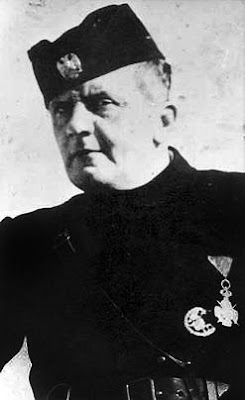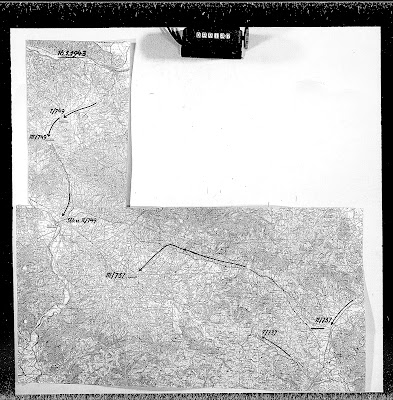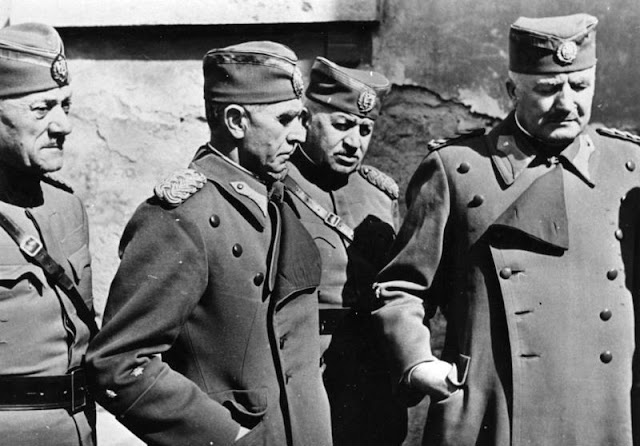REPORT OF THE COMMAND OF THE SIXTH INFANTRY DIVISION FROM JANUARY 25, 1943 TO THE HEADQUARTERS OF THE HOME DEFENSE REGARDING THE CONVERSATION WITH DOBROSAV JEVDEVlČ

Contemporary WWII photograph of Jevđević, almost face-on, in ceremonial uniform with a medal COMMAND MOST URGENTLY PERSONALLY AT HAND 6 INFANTRY DIVISIONS Op. Number 823/taj. In Mostar, on January 25, 1943 Subject: preliminary talks with Jevđević. — TO THE HEADQUARTERS OF THE HOME DEFENSE "Op." — 3 — TO THE GENERAL MILITARY COMMISSIONER N.D.H. — SUŠAK Today, in the private apartment of the police colonel Mr. Stjepan Jakovljević, commander of the 6th military regiment, held the first meeting of the representatives of our authorities with the leader of the Serbs, Dob...





